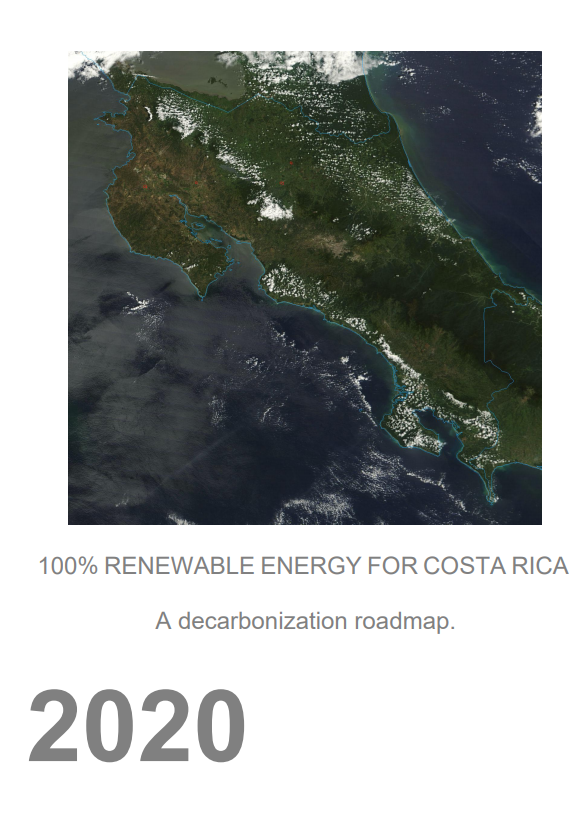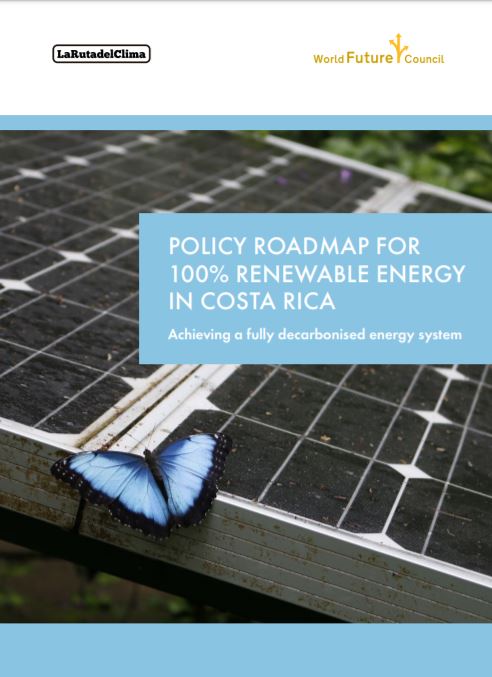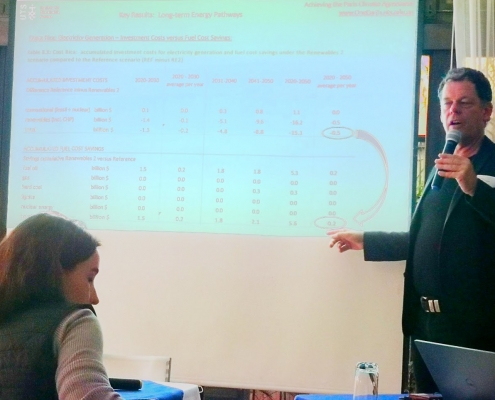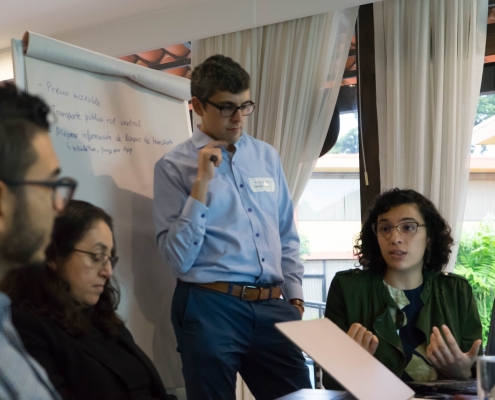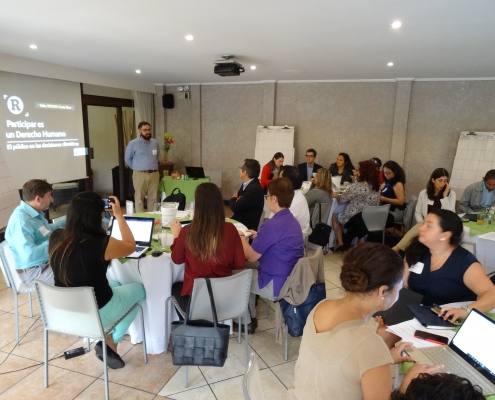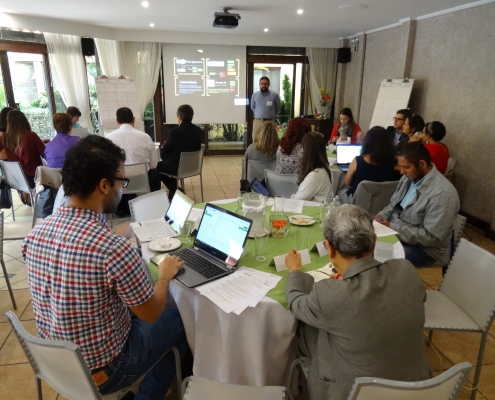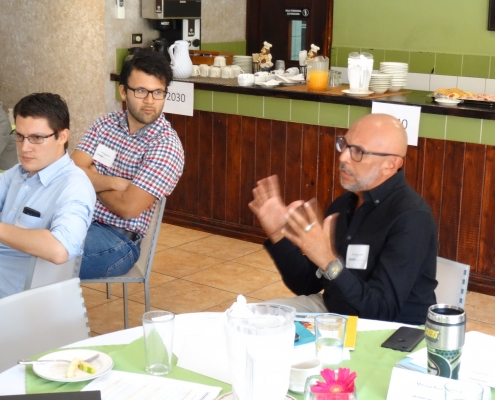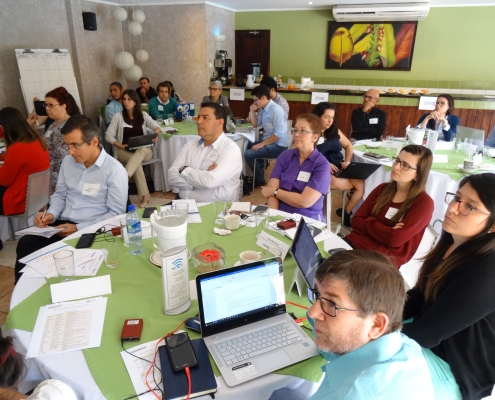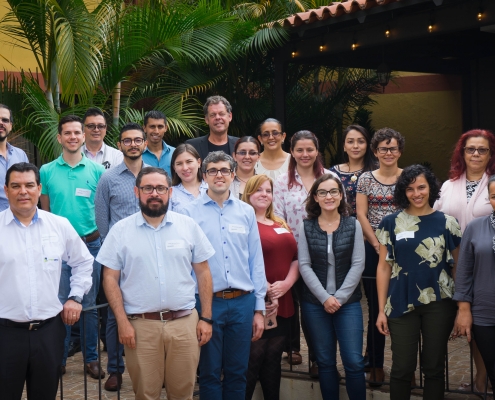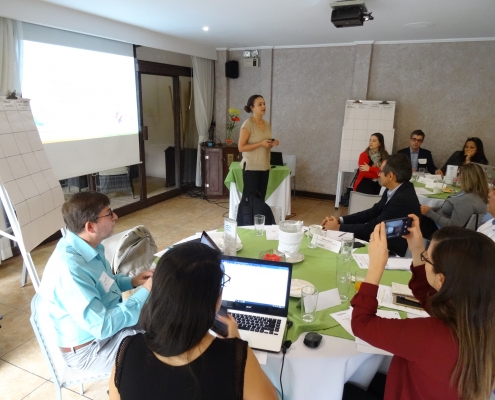In order to achieve that, an inclusive policy dialogue is essential that engages different voices and interests in developing effective measures to implement 100% renewable energy across sectors. The World Future Council has joint forces with the Costa Rican based civil society organisation La Ruta del Clima to facilitate such a multi-stakeholder process. The project resulted in an inclusively developed policy roadmap which is based on scientific findings and embraces perspectives and needs from civil society, industry, academia, private sector and various government bodies. The technical roadmap was developed by the Institute for Sustainable Futures (ISF) of the University of Technology Sydney, applying the OneEarth Climate Model to Costa Rica.
The overall goal of the one-year project was to provide a complementary support to the national efforts towards decarbonisation and a sustainable and low emissions energy system, with a focus on renewable energy. From a global perspective, the project aims to further cement Costa Rica’s role as a leader in achieving the global energy transition and full decarbonization. The country can act as a lighthouse for the international community in its efforts to implement the Paris Agreement and achieve a fair energy transition.
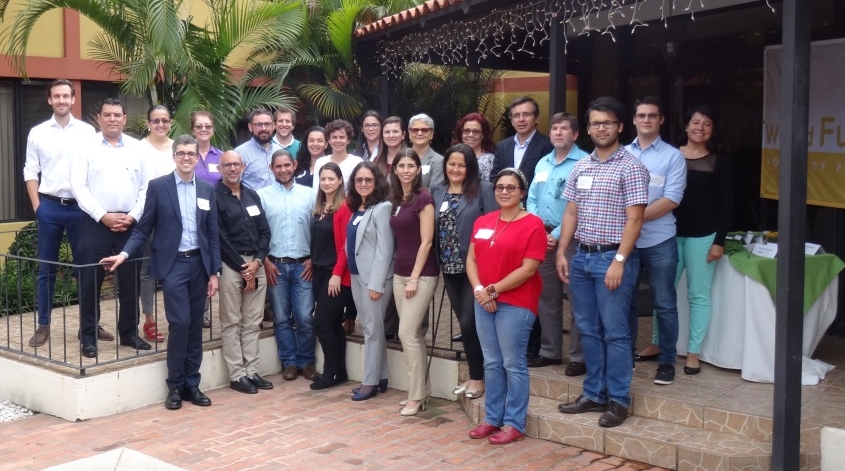
Results
The technical study done by ISF compares two renewable energy pathways with a business as usual pathway to highlight the socio-economic advantages of renewable energy over the decarbonisation pathway being implemented right now.
- Costa Rica’s abundant renewable energy resources can supply all required energy across all sectors, including increased electricity demand for electric vehicles. Utilising about 6% of total solar power potential and 25% of Costa Rica’s wind power potential would suffice to supply enough energy to do so.
- Electricity costs can be reduced by almost US$ 1 cent per kWh of power generation by deployment utility-scale and decentralised renewable energy installations.
- The Greater Metropolitan Area around San José has a big potential for decentralised renewable energy installations, such as Solar Home Systems (SHS).
- Costa Rica’s transport sector can become completely decarbonised by 2050. Electricity and (sustainable) biofuel production will be the main pillars and will be complemented by green hydrogen production in the country.
- The storage requirements can be kept to a minimum in most regions, except for Guanacaste, the region with most RE potential and low energy demand. To avoid curtailment between 4,200 MW (less ambitious RE1 scenario) and 10,000 MW by 2050 (more ambitious RE2 scenario) are required.
Activities
A first multi-stakeholder workshop took place on 23 July 2019 in San José, gathering government representatives, energy providers, businesses, NGOs, civil society and researchers. Participants agreed that Costa Rica will reach 100% renewable energy and acknowledged the constructive ambitions of the government towards this goal. However, they raised concerns on the technical and financial challenges to increase the electric capacity in order to decarbonize the entire economy, with an emphasis on transport. They also pointed to the social inequalities that have risen in recent times in Costa Rica and agreed that the energy transition should serve to enhance social integration.
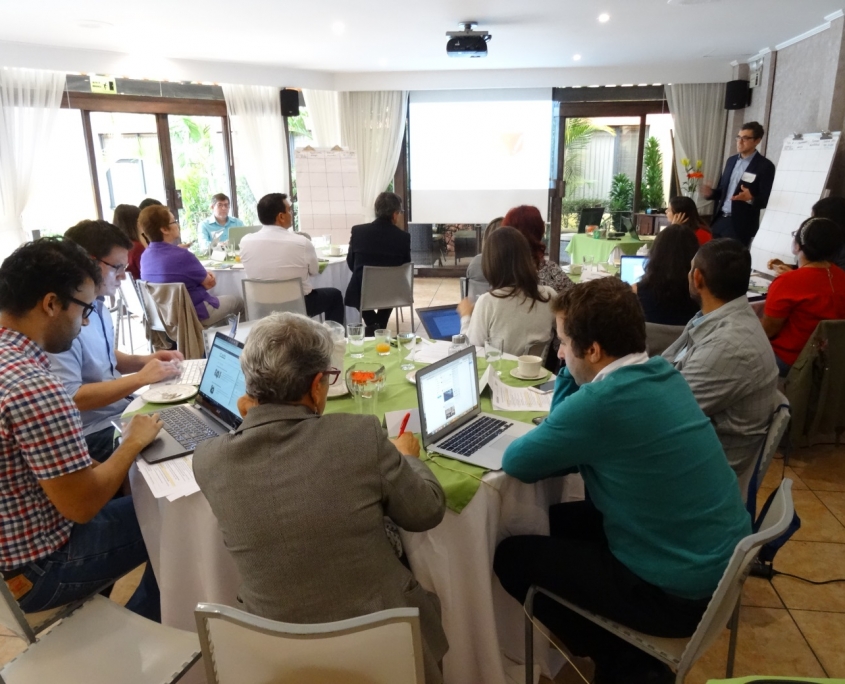
As stated by Andrea Meza, Director of Climate Change, Ministry of Environment and Energy, this project contributes to understand the meaning of the Decarbonization Plan, as it generates a dialogue on the energy transition and how we can all contribute to it, while considering the needs of all stakeholders.
A second workshop took place on 3.-4. October 2019, to share preliminary results of the modelling exercise and discuss the modelled 100% RE scenarios in more detail. In addition, the second workshop identified political priority areas and policy solutions, in particular with a view to reduce inequalities, strengthen rural economic development and electrify transportation. The workshop was complemented by a capacity building training for Costa Rican civil society organisations to optimise advocacy for renewable energy nationally and internationally.
The validated 100% renewable energy scenario was published during COP 25 in Madrid, Spain (hosted by Chile) and saw a full room with people eager to learn about the benefits of 100% renewable energy in Costa Rica and Bangladesh and get insights into what a just transition means for the Latin American country. Further bilateral discussions with key stakeholders from parliament, government and civil society, informed the development process of the 100% RE roadmap which was launched in June 2020 and is available in English and Spanish. Lessons learned from this project, have been highlighted in the publication “Achieving 100% Renewable Energy for All – Lessons learned from the development of Renewable energy roadmaps in the Global South”.
The webinar dealt with the role of renewables for a Costa Rican Green Deal whose importance for a prospering Costa Rica increased in midst of the COVID-19 pandemic in 2020. The webinar was held in Spanish and co-organised by La Ruta del Clima, Paola Vega (member of Costa Rican parliament and speaker of the Environmental Committee), and the World Future Council.
You are currently viewing a placeholder content from Default. To access the actual content, click the button below. Please note that doing so will share data with third-party providers.
More Information


